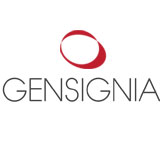 Molecular diagnostics company, Gensignia Life Sciences, Inc., has been recognized by the American Society of Clinical Oncology (ASCO) for its contributions in improving low-dose CT lung cancer screening efficacy. The recognition was granted in the Clinical Cancer Advances 2015: Annual Report on Progress Against Cancer, which was recently published in the Journal of Clinical Oncology.
Molecular diagnostics company, Gensignia Life Sciences, Inc., has been recognized by the American Society of Clinical Oncology (ASCO) for its contributions in improving low-dose CT lung cancer screening efficacy. The recognition was granted in the Clinical Cancer Advances 2015: Annual Report on Progress Against Cancer, which was recently published in the Journal of Clinical Oncology.
The diagnostic method awarded by ASCO is an experimental and noninvasive test to detect lung cancer, for which patients provide a blood sample instead of the standard biopsies. “Additional recent research will help improve the efficacy of low-dose CT lung cancer screening and reduce potential harms by identifying the populations that stand to benefit the most from screening, and developing ways to reduce false-positive screening results,” states the ASCO report, according to press release from Gensignia.
“A recent study addressed the problem of false-positive findings by developing a new diagnostic blood test for lung cancer (this study was funded in part by a grant from the NIH). By analyzing molecules called microRNA in a patient’s blood, physicians can determine if the abnormality detected on a scan is truly lung cancer. In a large validation study, combination of the microRNA test and low-dose CT resulted in a fivefold reduction of false-positive screening rates (from 19.4% to 3.7%),” the report continues.
[adrotate group=”3″]
The diagnostic test is based on the discovery made by the scientific co-founders of Gensignia, Gabriella Sozzi, Ph.D., Mattia Boeri, Ph.D., and Ugo Pastorino, M.D., who found that, by assessing determined microRNAs in the blood of high risk patients for the development of lung cancer, such as heavy smokers, physicians would be able to more accurately define the presence of lung cancer, or the probability of developing it.
“We are honored to have Drs. Sozzi, Boeri and our team’s research included by ASCO as one of the most important cancer research advances in 2014,” said the co-founder of Gensignia, Ugo Pastorino, M.D., who is also the scientific director of the Fondazione IRCCS Istituto Nazionale dei Tumori.
The researchers made the discovery by analyzing screens from high risk patients during routine low-dose computed tomography (LDCT) scans, and searching for evidence of potentially cancerous lung masses. The first conclusions of the research were published in 2011 in the Proceedings of the National Academy of Sciences journal, but the company is continuing the studies in order to validate the microRNA assay and has been conducting a large clinical study since 2013.
The findings of the study, which was published a year ago at the Journal of Clinical Oncology, revealed that the MSC Lung Cancer assay had predictive, diagnostic, and prognostic value, as well as that it was able to decrease the high rate of LDCT false positive results, therefore improving the efficacy of lung cancer screening.
“We are truly appreciative of ASCO’s acknowledgment of Gensignia’s clinical research,” added the chief executive officer of Gensignia, Lee R. McCracken. “And are committed to bringing the Gensignia™ miRNA Signature Classifier (MSC) Lung Cancer Test into clinical practice to improve lung cancer detection worldwide.”

